Media | Articles
11 garage essentials for any DIY car enthusiast
A garage is often a compromise between a dumping ground and a professional workspace. What jobs we do and how long each takes is up to us, how prepared we are, and a healthy dose of luck. The last we can’t really control, but the preparation factor is something we very much can.
Our tools are pretty much always at the ready, but breaker bars and gasket scrapers are not the only supplies you need. If you plan to regularly take on automotive projects, you’ll want to keep these 10 lubricants, fasteners, and clean-up materials on hand.
Grease
So many components need the sticky lubrication of grease. Generic chassis grease, in a tub or tube, is critical. If used correctly, it can solve a lot of problems, from capturing shavings while drilling into metal to holding needle bearings in place during engine assembly. A well-prepared garage should never run out of it.
Oil
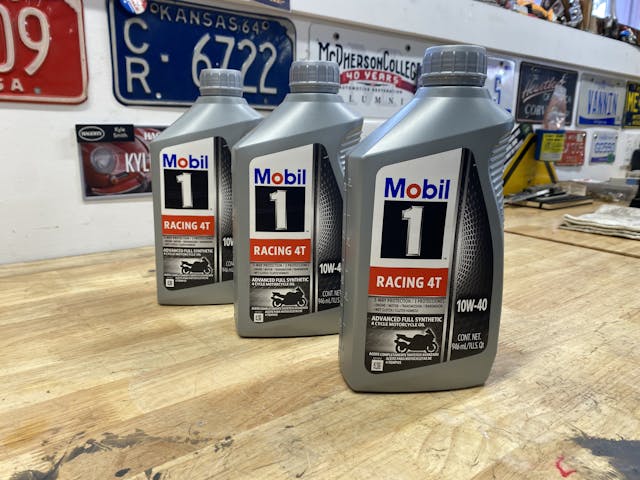
If you run to the parts store every time you need to top up your vehicle’s oil, you’re on a fool’s errand. Buy a few quarts up front. Stash one in the car and a couple underneath your workbench or on the shelf.
I like to keep everything needed for a full oil change on hand all the time, just in case. That decision hinges on the fact my vehicles’ oil filters are not readily available from the local parts store. Your mileage may vary.
Marketplace
Buy and sell classics with confidence
Gas
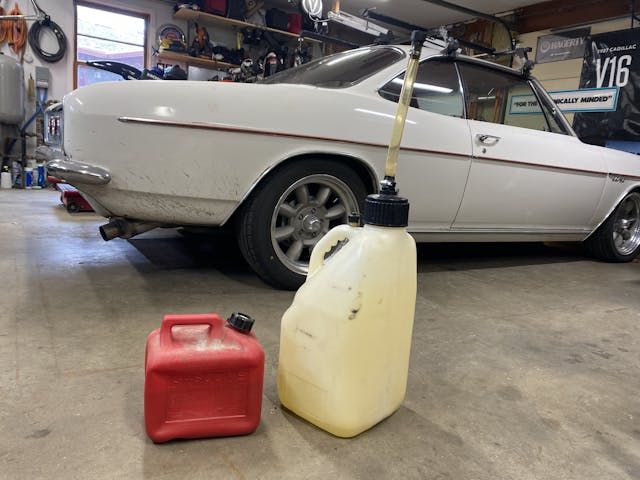
Having a gallon or two of fresh gasoline can be handy for diagnosing a poorly running vehicle or priming a car before it comes out of storage. The trick here is to use your garage’s fuel stash often and top up the cans to keep the fuel from going sour.
Remember: Gasoline should not be used as a solvent or cleaning solution. While it’s tempting, since you have some on the shelf, fight that urge. Use the proper chemicals rather than risking a fire that could burn your whole garage to the ground.
Carburetor and brake cleaner
Since you aren’t cleaning with gasoline, keep actual cleaners around. Between aerosol carburetor– and brake-cleaners, you have two of the most popular and versatile solvents.
Some people use them interchangeably, but brake cleaner can often leave a bit more residue. Will carb cleaner do the same job in a pinch? Yes, but using the right tool for the job is always best practice.
Cutting blades
Regardless of what project you are working on, and especially if you’re fabricating, there is a non-zero chance you will need to cut something. From hacksaw blades to razor blades, a sharp edge can be critical in rescuing a project.
Wire and some connectors
Most enthusiasts seem to despise wiring projects, but the vast majority of wiring problems are simple fixes. Most electrical issues trace to broken wires or corroded connections, and the best things to stock are a handful of connectors and loops of wire in various gauges.
Unlike most of the other supplies on this list, wires and connectors don’t go bad. Buy in bulk now, and forget about the cost when you dip into the stash.
Penetrating oil
Just like having carb- and brake-cleaners around, keeping your favorite penetrating oil on the shelf and ready will make your life so much easier. I always keep a brand-new can next to the open one. Once I open the new can, I restock. This ensures I will never be mid-project without the ability to break free stuck hardware.
Rags and oil-dry
Spills happen. The appropriate mess-control methods are important to keeping your working environment safe and efficient. Rags are also helpful for cleaning off tools at the end of the day and for plugging inlets that you don’t want to fill with debris—like intake ports, if you’re working on carburetors.
Zip ties
They aren’t the solution to everything in life, but zip ties solve a lot of problems, from tidying wires to organizing disassembled parts.
Pro tip: Buy black zip-ties. The carbon black added to the resin makes these more UV-resistant than white or clear ones.
Common hardware
The number of times I’ve needed to fabricate something to replace a stripped fastener … yeah, don’t ask. I now know the bolts and nuts that I’m most likely to encounter on my projects, and I keep these fasteners well-stocked. It’s confidence-inspiring, because, if something happens, I know I’ll save time by avoiding a special order.
Your shop manual
It’s not a consumable, but you should always keep a shop manual in the garage. From step-by-step instructions and wiring diagrams to exploded drawings of individual components, shop manuals are a godsend.
My favorite approach is to find a .pdf version of the appropriate manual and save it on my computer before printing it off and putting it into a three-ring binder. Original, bound printings are great, but decades of storage can make pages delicate. A self-printed manual can always be printed again if you spill oil on it or otherwise damage it.
***
Check out the Hagerty Media homepage so you don’t miss a single story, or better yet, bookmark it. To get our best stories delivered right to your inbox, subscribe to our newsletters.


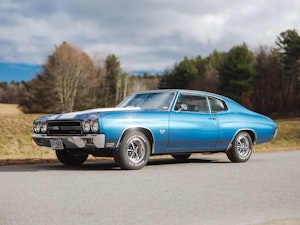







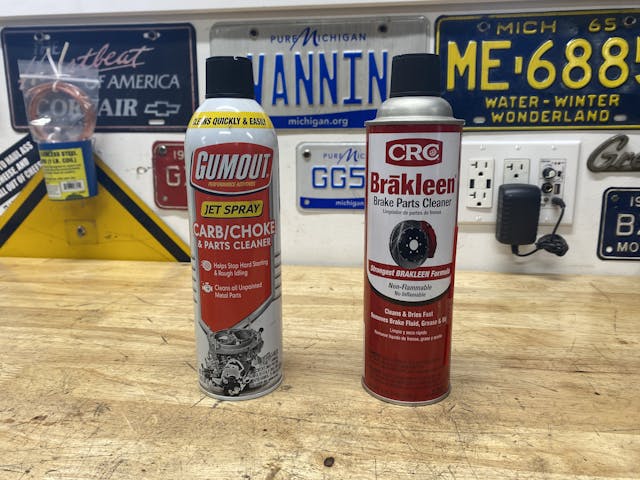
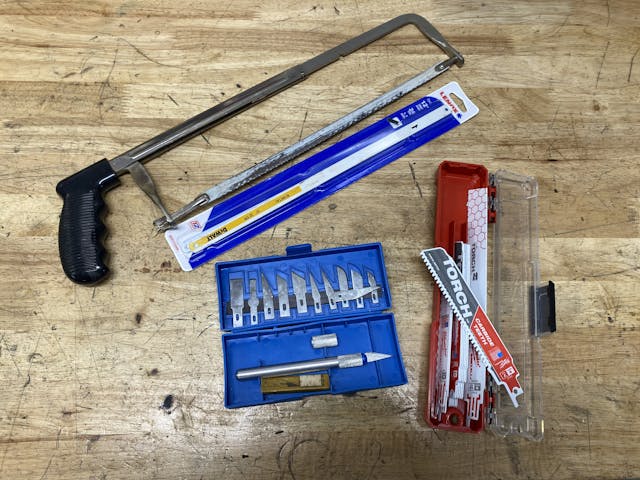
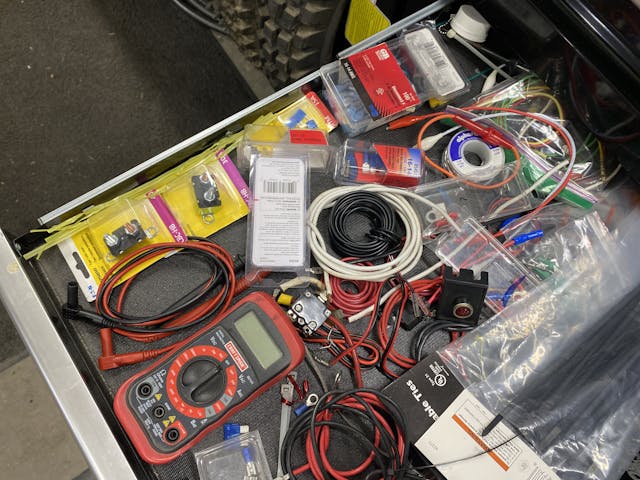





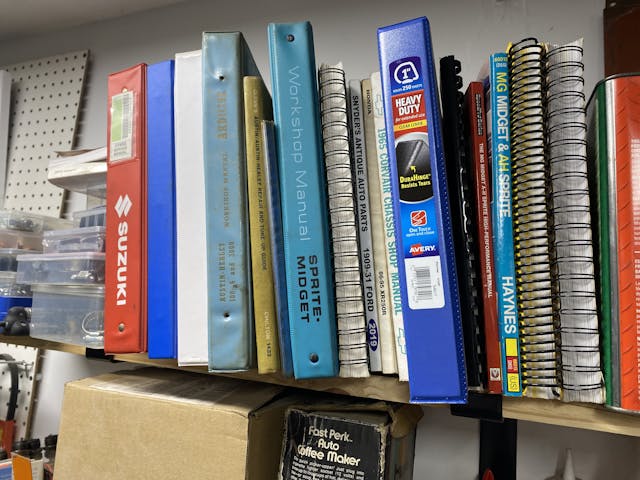

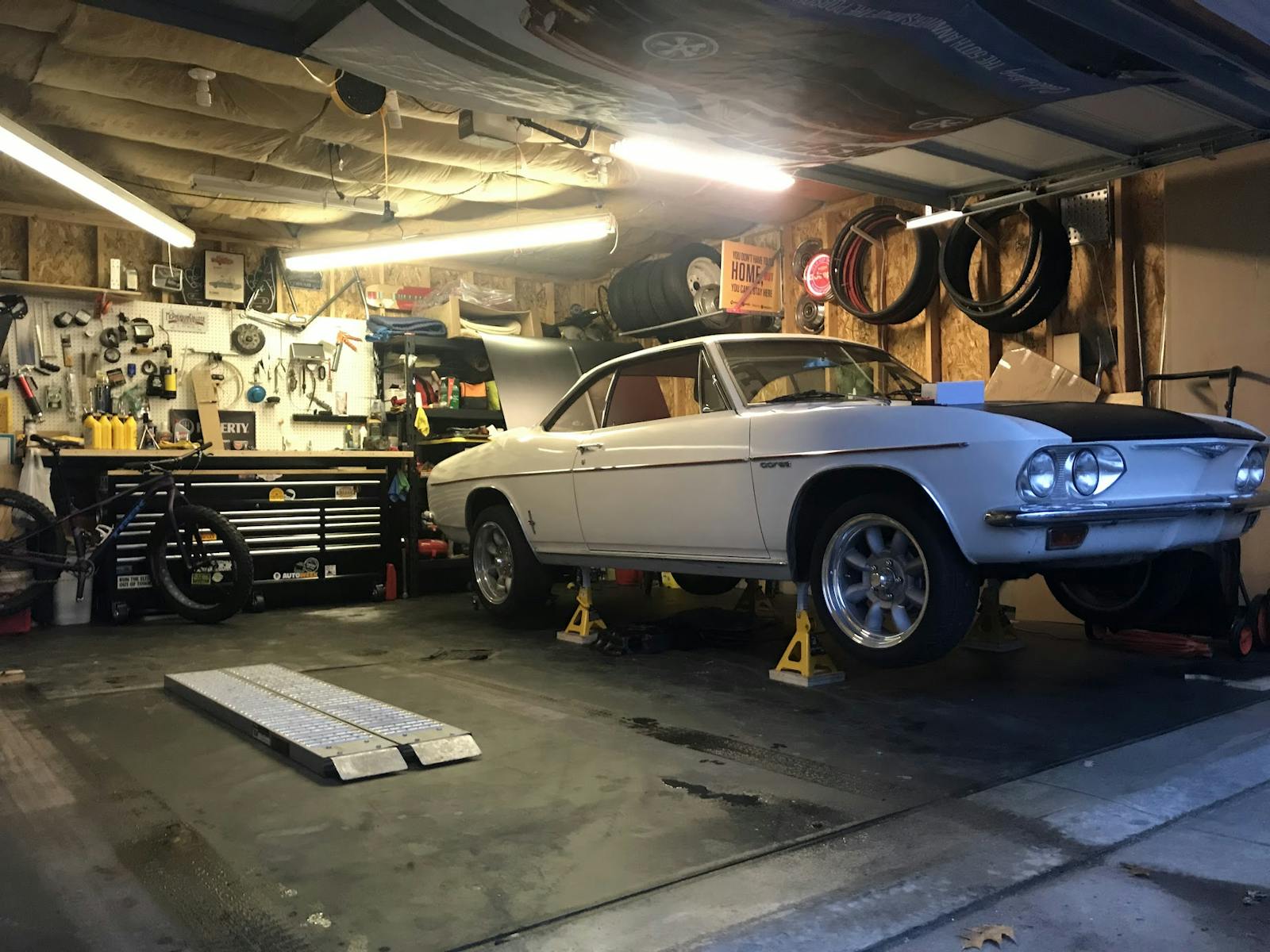












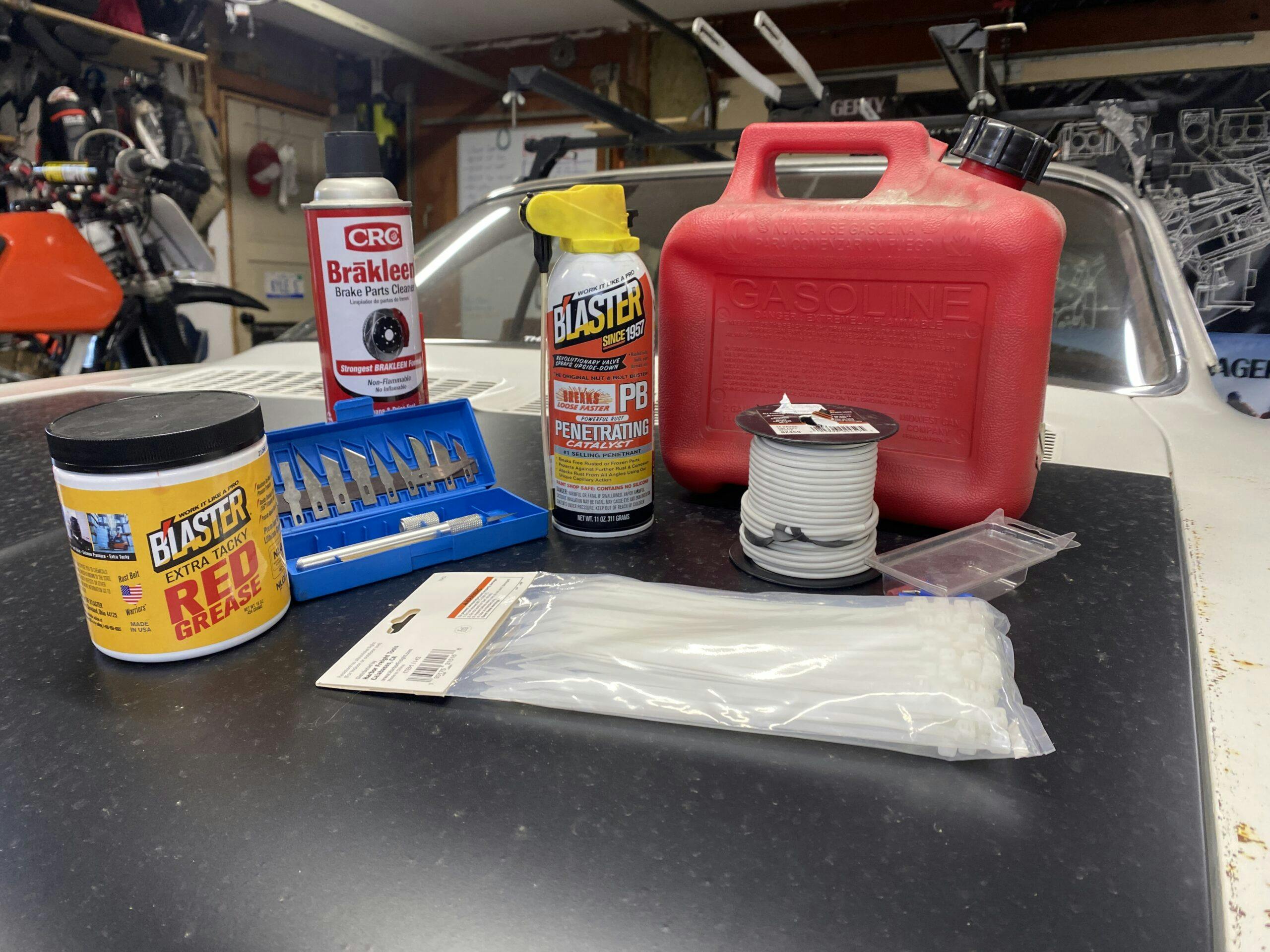
For all of you talking about fire extinguishers, when was the last time you had your extinguisher inspected? That arrow in the green part of the dial does not mean anything. There are the monthly safety checks which everyone is doing, right? Then the annual third party inspection and finally the six and twelve year inspection and refills. Of course your private home/garage i not subject to NFPA 10 or OSHA but should you be any less safe?
Hopefully for auto shop use you have B type extinguishers for oil and gasoline fires. In my farm maintenance shop (5,000 sf steel building) we have eight 10 pound type B’s, one by each exterior door with a few ABC’c scattered around. I have told the staff that in case of a fire they cannot extinguish by smothering it to get out of the building; they can throw the extinguisher at the fire on their way out if it makes them feel better, but get out. I can replace that million dollar combine but not them. My shop foreman does the monthly checks and I have a contract with a local fire service company for the annual inspections.
??? Gas, brake clean and other flammables inside my garage with all my cars insured by you? You’re an insurance company and you didn’t include a Fire Extinguisher? Shame on you.
Kyle, yah forgot the most important item! Besides all the other items mentioned….the Cleaner/wax to spiff the Corsa up for the 2023 Convention
Well if I’m driving there I’ll probably leave it dirty. That’s how it often looks best!
Trickle charger; Still have mine I bought from JC Whitney in the 80’s, and use constantly on my classics.
Brake cleaner ,Gas ( Petrol ) both highly inflamable the vapour even more so . If you value your hide do not use them in enclosed places especially if you have open heat sources readily available . the safest hydrocarbon for cleaning is probably paraffin ( lamp oil ) takes a wick to get it burning.
I always thought brake cleaner evaporated more quickly and left LESS residue than carb cleaner. And other than evaporating more quickly, is either less flammable than gasoline? I find gasoline to be an excellent cleaner and degreaser. Its cheap or free (I use the old sour gas I drain out of vehicles and power equipment), plentiful, and works great. It evaporates off and leaves a very slight residue which seems to discourage new rust from forming on bare metal. It doesn’t dissolve paint like many solvents. I usually put it in an old windex bottle and spray it on and brush the grease away with an old tooth brush or larger scrub brush. Usually don’t use rags but if I do end up with a gas soaked rag I bring it outside, lay it out, and let all the gas evaporate off of it.
use UL approved metal gas cans ,, carburetor cleaner and brake cleaner are just as flammable as gasoline .. easier to prime a carb with a shot of carb cleaner ,, if you have a cat just use kitty litter for oil or antifreeze spills
He, he
Actually this looks more like my kitchen junk drawer, minus the gas. My garage is much better equipped. The coffee maker resides in the kitchen, not the barn/garage – an insulated go-mug is for keeping coffee hot while in the barn.